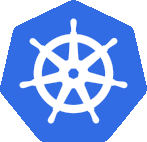Course Overview
This course provides insight for people that are not working as a cluster admin or user, but are for example offering support into Cloud-native computing, Microservices Architecture, Containerization (such as Docker), and Kubernetes. Its goal is to make you understand what they entail, what necessitated them, and how to perform basic troubleshooting and monitoring.
Course Prerequisites
There are no pre-requisites to this course other than familiarity with general software development and IT.
Outline
This course is designed specifically for individuals within an organization who engage with Kubernetes, but not in the capacity of cluster administrators or developers. It's particularly beneficial for roles like support. The curriculum draws from the Cloud Native Computing: MSA, Containers, and Kubernetes for Non-Technicals course. When organized as a private event, the initial session (be it a morning or a full day) provides a comprehensive overview of Kubernetes, detailing its value and significance to the organization. This allows various stakeholders to gain an understanding, ensuring alignment and clarity across the team.
The Problem Definition
The long road to MSA
In this first part, we look at the current state of our IT Architecture and dive into how we got here by laying out the gradual evolutionary process. We started this road at the tail-end of the eighties, just before application-centric. This section will cover the following:
- The benefits and challenges of client/server architecture
- The move to application centric architectures
- the birth of services and components
- Values and problems of Component-Based Design
- The force of low coupling (one of the drivers for architecture)
- The era of Enterprise Application Integration (EAI) and Integration Patterns (EIP)
- Event-Driven and Message-Oriented architectures
- The rise of the Service-Oriented Architecture
- Promises made by Enterprise Service Bus (ESB) and the fall of SOA
- the dawn of Micro Service Architecture (MSA)
- Values and characteristic of the MSA
Technical revolutions and eventual freedom
In this section, we take a look at a second driver/dimension that led us to where we are and how it led to the birth as well as the immense popularity of Docker. This journey starts during the height of application-centric architecture in the mid-nineties. Here, we’ll cover the following:
- From CORBA (Common Request Broker Architecture) to the rule of Java Enterprise
- The ages of the (Java) Application Server (WebSphere, WebLogic, JBoss, Glassfish, Tomcat, OC4J)
- The introduction of deployable components
- Finally competition, Microsoft joins with .Net
- The value for IT and Operations
- The stifling effect on IT Projects
- The rise of (multiple) technology stacks
- The technology matrix hell
- The need for more agility and constrained freedom
- Redefinition of: "Separation of Concerns"
Containerisation
In this part, we explain what containerization is and how it solves the problems we have discussed so far. Here is what we’ll cover:
- Recap of the problems solved by Containerisation
- What embodies a container ("what's in it"?)
- The role of Virtualization and its role in containerised environments
- The definition of containers and images as well as the relation between the two
- Docker-compose and the depleted soil of Docker Swarm
- The required infrastructure for images
- The impact of the containerization on the software delivery processes
- Risk mitigated by Containerisation
- Containerisation, MSA, and a call for DevOps
The Crucial Role of Kubernetes
MSA and containerization have their own challenges when used with traditional IT application platforms and deployment strategies. This is where Kubernetes comes in. In this section, we’ll cover the following:
- Challenges addressed by Kubernetes
- What is Orchestration?
- Choosing between on-premises or cloud-based Kubernetes clusters
- A discussion on cluster sizes
- Security in Kubernetes
- Cluster Observability and monitoring
- Cluster logging (ELK/Elastic Stack, Kibana, Loki, Grafana)
- Resource and performance monitoring (Prometheus, Grafana)
- A quick rundown of popular tools (helm, Kustomize, …)
- A discussion on DevOps and Gitops
- The possible need and role of a Service Mesh
Standardisation
Lastly, we’ll cover the following crucial enablers:
- Appreciate the Open Container Initiative (OCI)
- The role of the Linux Foundation
- Container runtime abstraction: CRI (Container Runtime Interface)
- Container Network Interface (CNI)
